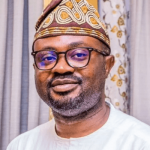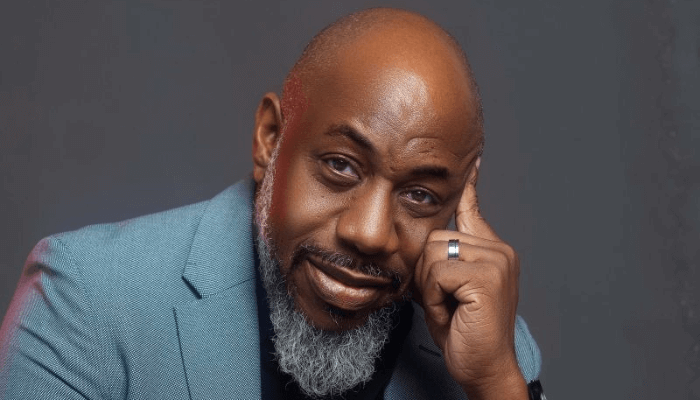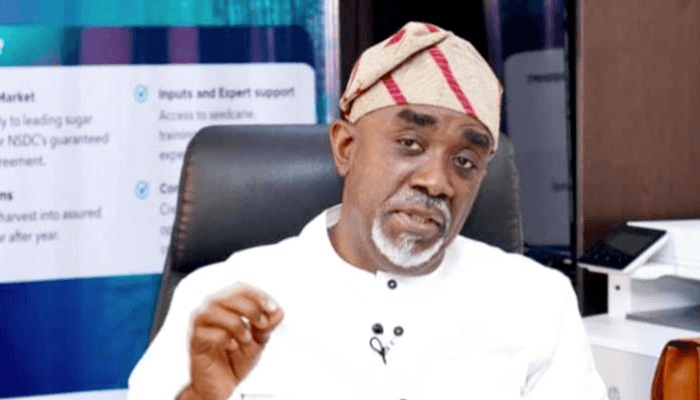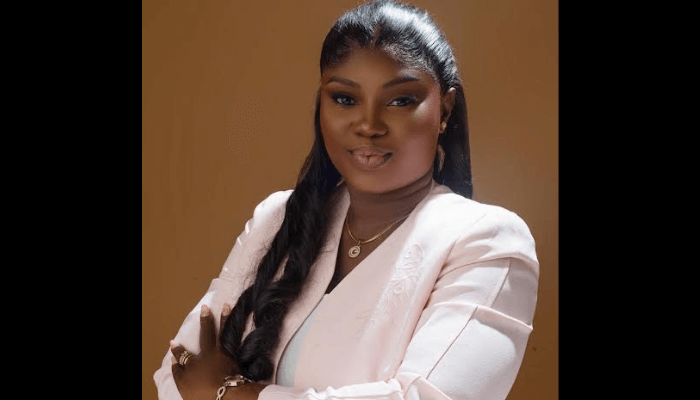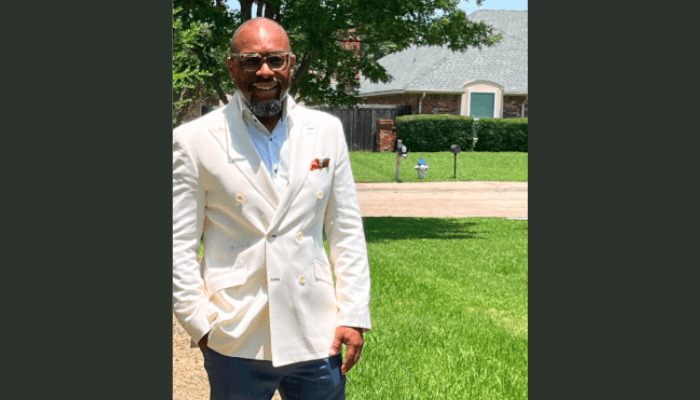The Professor of Human Physiology in Uniport who heads to the Nigerian Academy of Medicine where the fate and future of medicine are shaped
Victor Datonye Dapper is one of the longest standing professors of medicine to come of the Niger Delta, specifically from the University of Port Harcourt. He is now heading to be decorated and inducted as Fellow of the Nigerian Academy of Medicine (NAMed), something regarded as rare honour to a Rivers son.
The Bakana-born scholar is the Professor of Human Physiology who graduated with Distinction in Medicine from the University of Port Harcourt many years ago, and has been lecturing ever since.
On September 9, 2025, Dapper would join a very short list of medical professors from Rivers State to be inducted into the NAMed, following the footsteps of a trail-blazing Rivers medical professor and medical icon, Nimi Dimkpa Briggs, two-time vice chancellor of the University of Port Harcourt who died few years ago.
Dapper would take his golden seat with very few other distinguished professors from Rivers State including Opubo da Liliy-Tariah, Chris Akani, and Iyeopu Siminialayi. These rank shoulders with very top Nigerian medical professors such as Isaac F. Adewole, Jude U. Ohaeri, Ajesola A. Majekodunmi, John Idoko, and Sonny O. Jeboda.
Dapper would be inducted with other newly elected Fellows and Professors including Bolanle Alake Adeniyi, Adesoji A. Adesina, Joseph I. Ikechebelu, Oliver C. Ezechi, and Kehinde S. Oluwadiya.
Dapper confirmed that his admittance into the Academy is a very big boost to the Niger Delta region. “This is because the fellowship is the highest honour and recognition to a medical doctor. It is about research and policy in the medical field. They help to strengthen the medical practice and bring up younger practitioners through counsel and guidance.
He sees this feat thus: “Those of us from the Niger Delta will continue to pay homage to Prof Nimi Briggs who is a founding member of the Academy and one who blazed the trail for people like us in the region. It brings pride and honour to the medical practice in the Niger Delta.”
The professor agrees that these are men who would determine the direction of the medical practice in Nigeria and help to proffer solutions to delicate healthcare issues. Experts admit that some of the teething challenges facing Nigeria include exodus of medical personnel from Nigeria, constraints of research, persuading Governments to give adequate provision to the health sector, and the menace of free advertisement of drugs on social media.
Dapper already has strong suggestions he may put forward to the Academy on the menace of adverts on social media where everybody now seems to be an authority on health.
In an interview with BusinessDay in his office in the Uniport, Dapper admitted that social media adverts and claims on cures for ailments such as diabetes, hypertension, fibroid, and prostrate seem to create more doom than cure by creating confusion in the populace on what to believe and who is right.
Every page on social media brings up a very prominent Nigerian who would be heard condemning the pharmaceutical industry for allegedly hiding the real cures so as to push their drugs that would allegedly kill the populace. Many Nigerians say this sounds scary but these adverts sound so audacious and authoritative in condemning doctors and pharmacists, claiming the advertisers alone were the right practitioners with magic drugs and concoctions to eradicate one disease or the other.
Dapper said the Nigerian Academy of Medicine would be right to advise government regulatory agencies such as the National Agency for Food and Drugs Administration and Control (NAFDAC) to intervene in the growing menace.
He said: “Yes, I admit that citizens are growing worried that they see faces of very important persons and leaders broadcasting messages condemning doctors and pharmaceutical companies. Some even claim that pharmacists attempted to kill medical doctors that tried to give correct prescription to protect the phantom industry, as they claimed.”
He however sounded it clear that fighting the social media advertisers is not the duty of the Academy but that of the regulatory agencies. “There are rules on advertisement of medical products and rules of verification. This is a growing menace and I as a person condemn it.”
He admitted that the Academy can give counsel to the appropriate agencies to act quickly to safeguard the integrity of the medical practice.”
He also saw a lot of tasks for the Academy, saying they do spearhead researches into medical science and healthcare in Nigeria and Africa. One such branch of medicine could be tropical diseases; afflictions of Africans such as fibroid. Others expect more inroad into malaria, jaundice, prostrate enlargement, etc.
Journey in medicine:
Dapper was born in 1966, around the time of the outbreak of the Nigerian civil war, in Bakana, Degema LGA of Rivers state. He worked his way up in the medical field to graduate with B. Med. Sc. degree in Physiology (1988) and MB; BS degree (1991) graduating with distinctions from University of Port Harcourt, Nigeria. On completion of the mandatory national service, he returned to his alma mater in 1993 as an academic staff: subsequently obtaining an M. Sc. degree from University of Benin in 2002 and MD degree (both in Human Physiology) from University of Port Harcourt in 2007.
He has sojourned steadily in the profession and has to his belt over 100 scientific articles in several national and international journals. He indicated as a renowned scholar and medical educator who has made significant contributions to Medicine.
The medical field seems to regard him highly because of his research documents pathophysiological and hemorheological changes in various states and diseases. With cognate experience spanning over three decades of research, academic leadership, community service and teaching of postgraduate and undergraduate medical and paramedical students across the country; he is established as a worldwide authority and expert in Physiology.
Dapper serves as professorial assessor and examiner to several universities across Nigeria and has successfully supervised a number of Doctorate candidates: some are now professors. He was Head, Department of Human Physiology at the University of Port Harcourt and later Dean, Faculty of Basic Medical Sciences at two Nigerian Universities.
Additionally, he has served the Nigerian public as Board and Council member of a State University Teaching Hospital and Federal University respectively. He is Fellow, Physiological Society of Nigeria and Royal Society of Biology; and member, The Physiological Society (UK) and American Physiological Society.
The easy-going Professor, who is happily married with children, was recently appointed Director of Sports of the Uniport to head the Sports Institute. In an interview, he described it as basically about normal functioning of the body.
On the connection between Medicine and Sports for a professor of medicine to head the Sports Institute, he showed the huge connection. “First of all, I am a qualified medical doctor certified by the Medical and Dental Council of Nigeria. That aside, Physiology is about how the body functions, and Sport is about human body function sometimes under extreme circumstances. So, who better understands both than a Professor of Human Physiology! Am not only a medical doctor but a professor of Human Physiology who can best understand how the body functions in different situations: in health, in disease, in exercise, and in various body conditions.”
The hilarious professor did not mind being told that he appeared to have strong physicality, and this could give the impression that he did a lot of sports while growing up. “Hahaha. Everybody is a sports person but at different degrees of physical exhaustion. As a sports director there is a lot of moving around the sporting complex of the University, plus the fact that you have to keep chasing the ball.
“It comes with the job. Health is wealth, and to maintain good health, you need to exercise. So, exercise is health and it is also wealth. If you want to be healthy, you have to exercise; if you want to be wealthy, you have to exercise.”
He easily agrees that sport is important in the Niger Delta and the region has a history in sports. He agrees that research could look into some sports in the Niger Delta and create blueprints and programmes for governments in the region to follow and make the region explode in sports. State governments can be advised on what to do to develop certain sports in Niger Delta.
He pointed to swimming as a ready example for the region. “Yes! This is because the Niger Delta region is full of streams, rivers, bodies of water and close to the Ocean. Lots of the budding talents in swimming are from the Niger Delta, as well as other spheres of endeavours. That’s is because of the nature of the Ijaw people, born very close to water, very close to the Ocean. Somehow, we learn how to swim right from birth.
“Unfortunately, these innate abilities of the Niger Delta people have not been focused on over the years by governments. We need to emphasise on this in the region.
“I agree with the suggestion that the Uniport Sports Institute can now begin to use its power as the Centre of Excellence to put a voice with a blueprint to show how sports can be developed, step by step. I also agree that after five years, a review can be done. States that are doing well with the blueprint can be highlighted and given genuine awards.”
He however added thus: “What we have done so far is to develop manpower and we have acted as a Centre of Excellence in sporting activities for both the Uniport and beyond. A lot of Uniport students we trained have been winning laurels around the world for the University and for Nigeria.
“We have also built capacity in terms of development of people who have competences in areas such as MSc Sports Science, MSc Sports Medicine, etc. over the years. Its two thronged approach: build capacity for sports participation and develop capacity in terms of academic competence.”
Dapper declared that the Uniport Sports Institute is the foremost sports institute even in the country. “Its only recently that the Unilag is trying to develop an institute that we developed over 10 years ago. We have done a lot to deepen sports in Rivers State and the Niger Delta.”
On links between the Uniport Sports Institute and the National Sports Institute (NSI) which trains and grades coaches, Dapper said: “Sometimes our coaches go there to train and some come here. Often, we collaborate with the National Sports Institute and the National Sports Commission for better results. We also serve as reserve base for identification of sports talents for the national body.”
By September, Dapper and few others would have been inducted into the very sensitive Academy. The grateful professor highly commended some professors, Opubo da Liliy-Tariah, and all Fellows from Rivers State. He extended big appreciation too to his mentees across the length and breadth of Nigeria particularly some professors such as Ologhaghu Adienbo and Fortune Amah-Tariah, as well as doctors like Hamilton Opurum, Sunday Ojeka, Michael Egbejimi and a Pharmacist, Martin Nwiko.
Dapper gave insights, saying the position of Fellow is not tenured but for life. “It affords one to sit where medical practice is reviewed and discussed at the highest level in Nigeria. It is a great honour for which I salute my colleagues and those that pushed this project to eventual success.”






